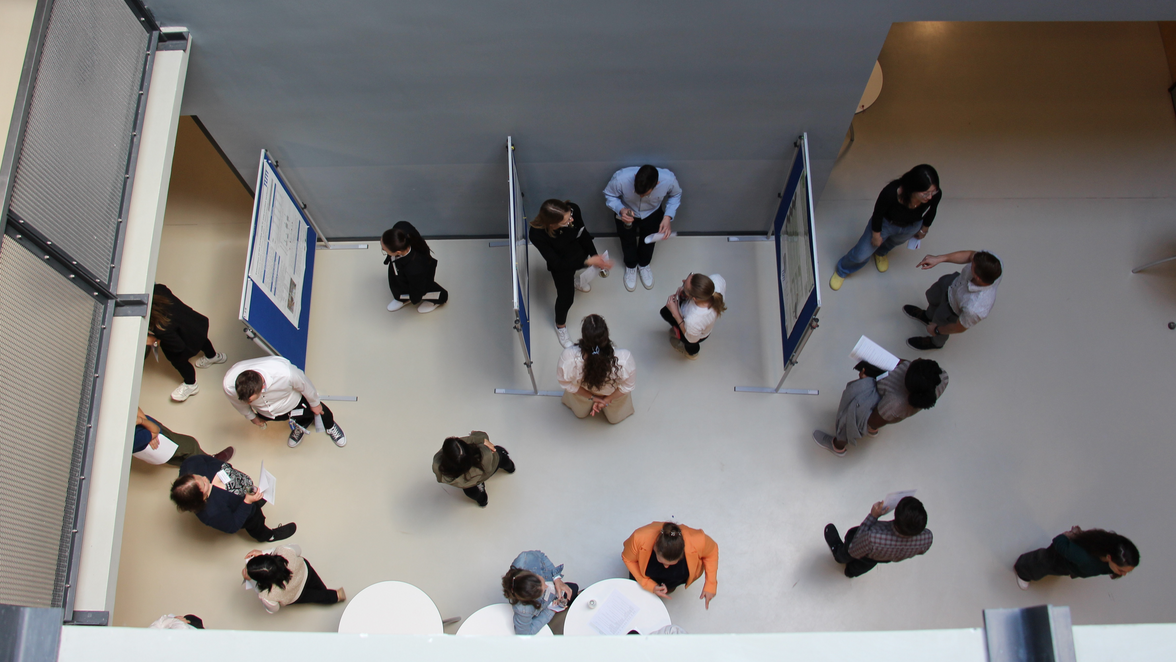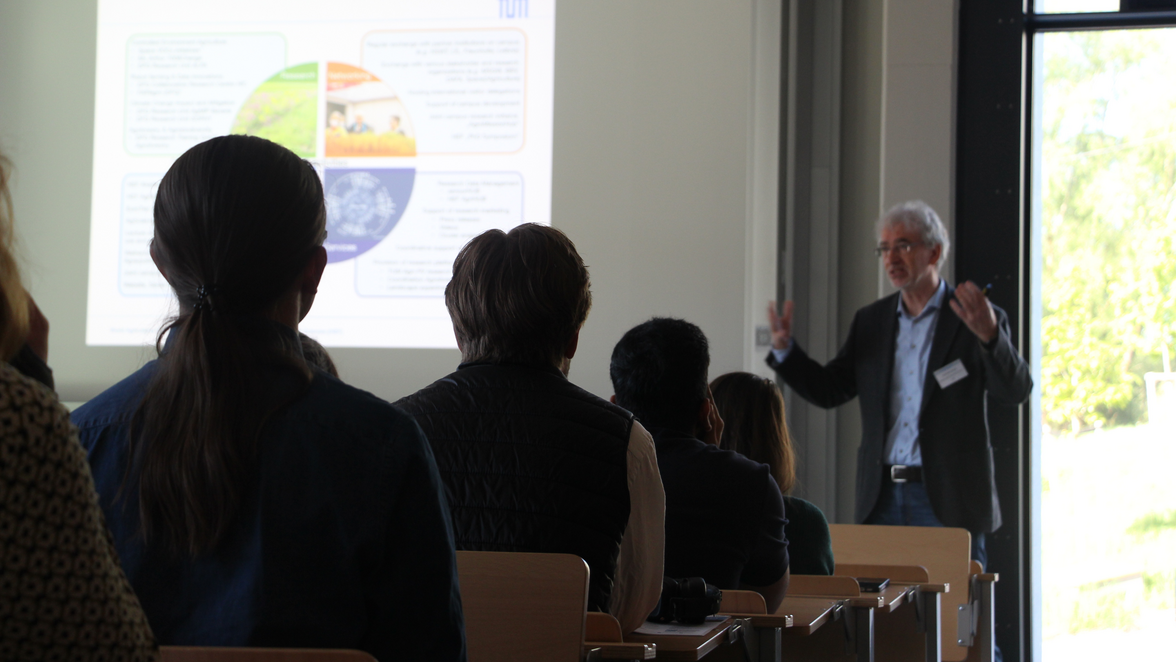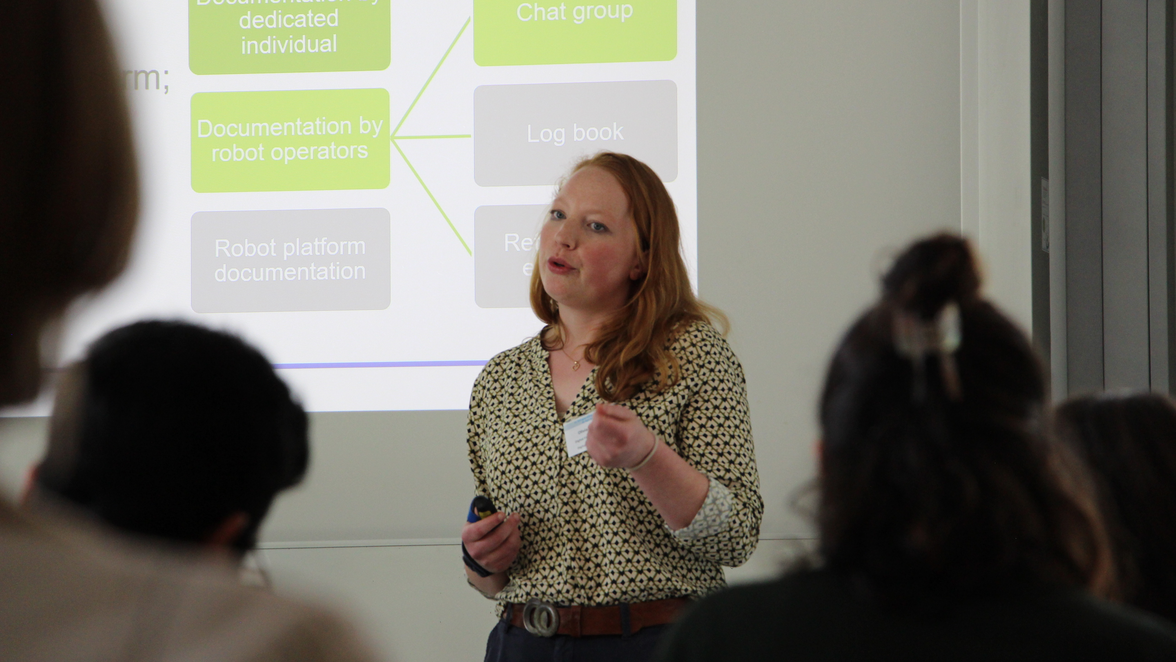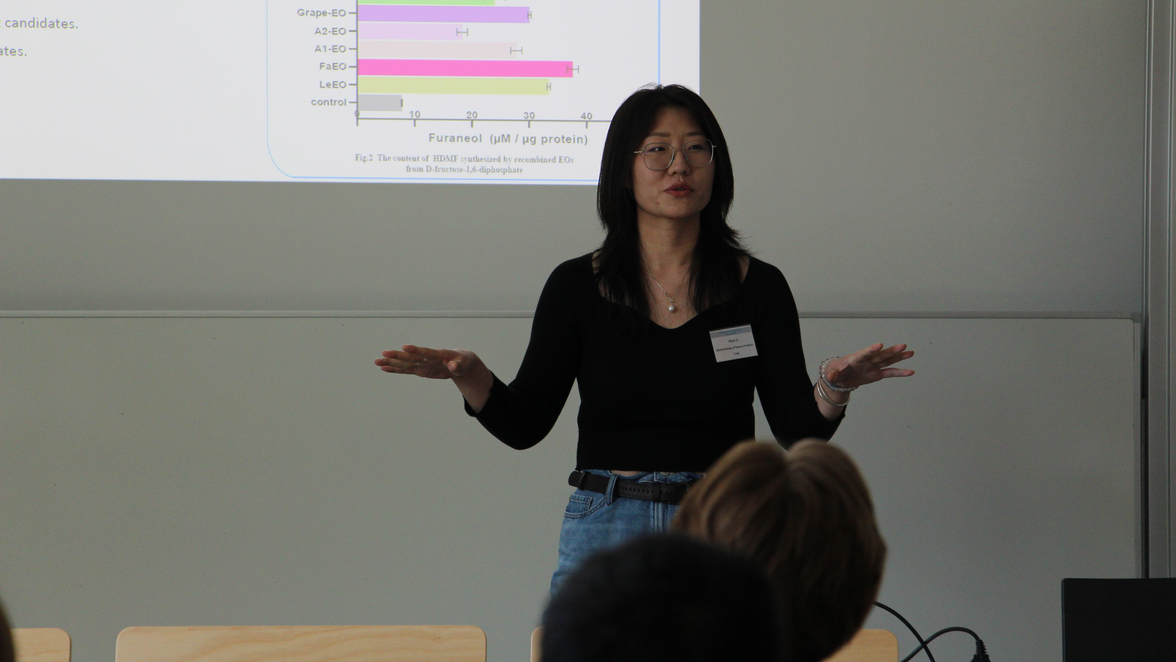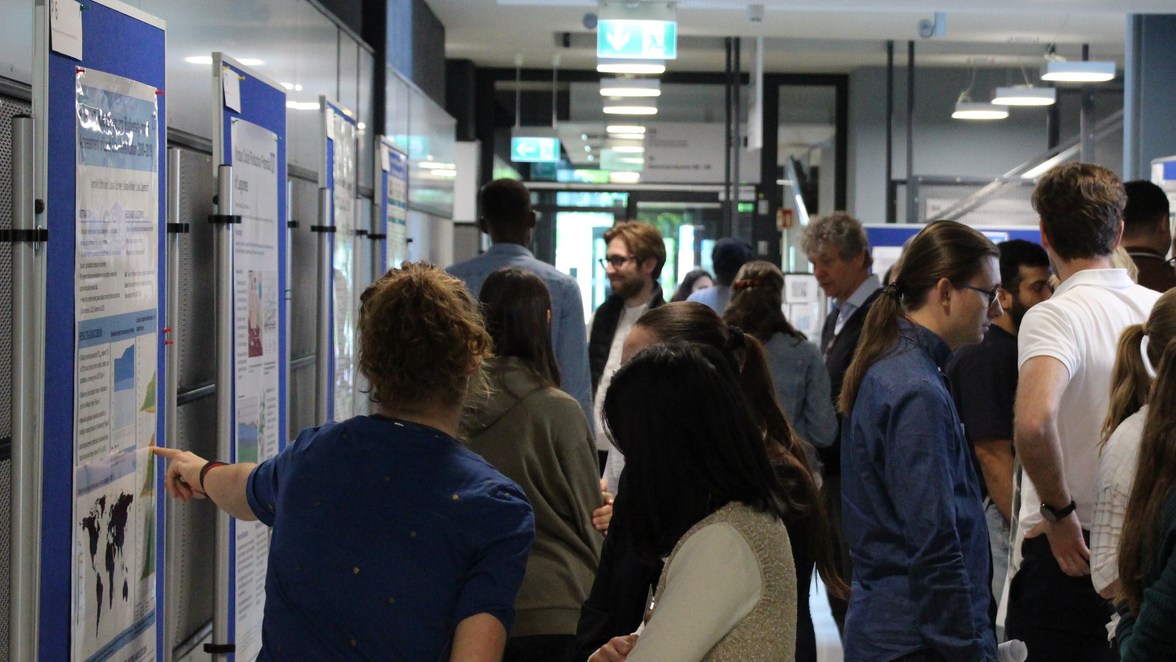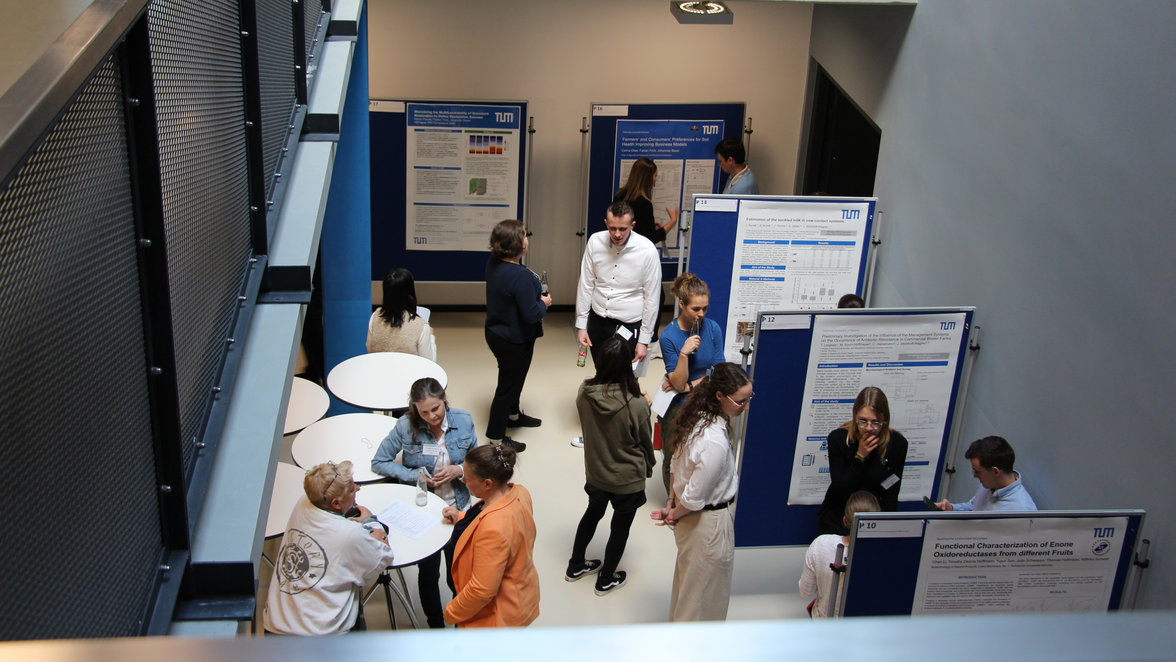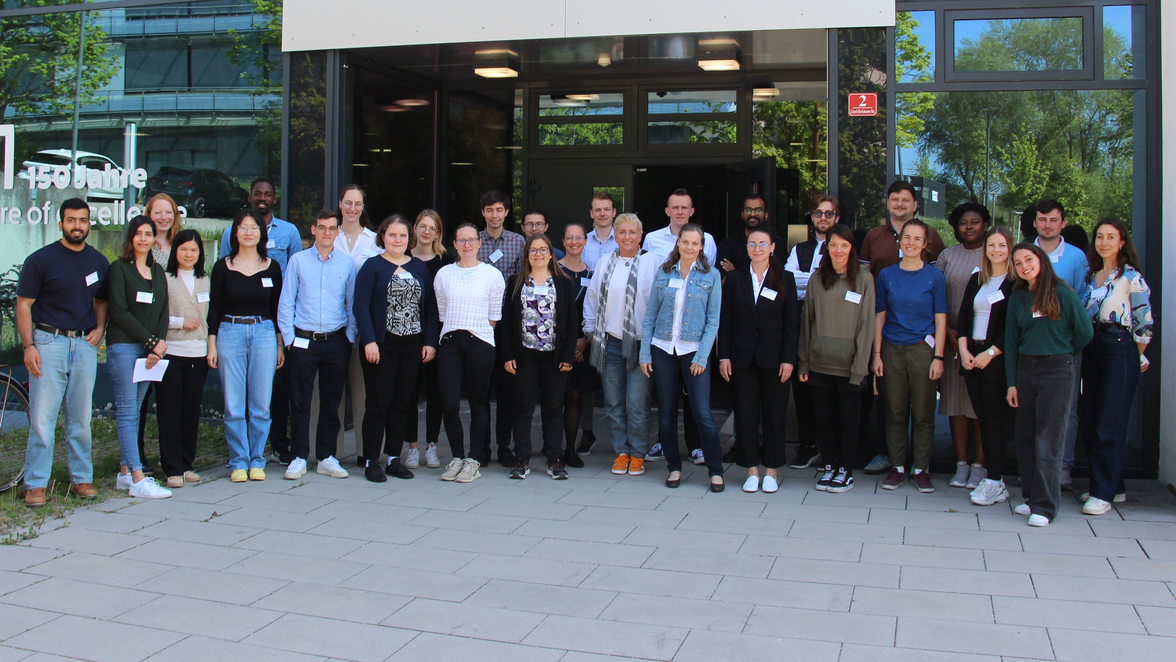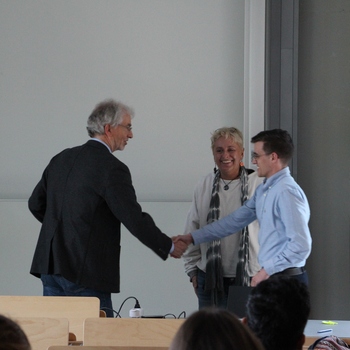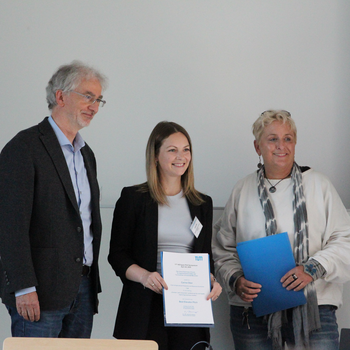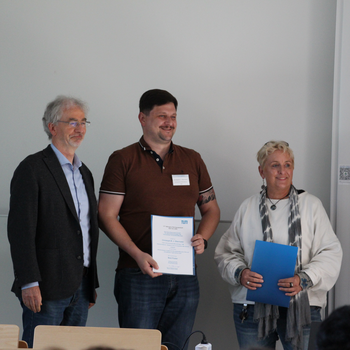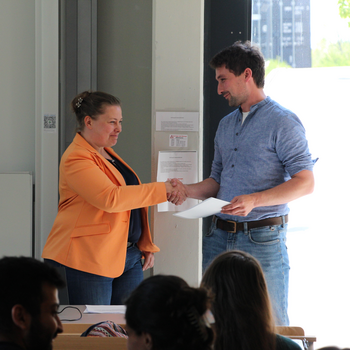The many facettes of agricultural sciences
News, Research, Event, PhD-Symposium |
Doctoral students do not only learn from their supervisors but also from each other – they encounter similar milestones and challenges. The HEF PhD symposium aims to connect young researchers, to foster their network and to provide a feedback platform. On April 29th, the scientists could meet and exchange at the 11th HEF PhD Symposium.
From plants to economics
The young scientists presented their diverse research questions, such as:
- How do plants and soils adapt to climate change?
- How can we improve the health of calves, piglets and chickens?
- What are the economic impacts of biodiversity measures, grassland monitoring, and different land uses?
- How do Agri-PV, crop robots and innovative remote sensors shape future agricultural practices?
In the discussions after each talk, the participants uncovered open questions, further research questions and potential thematic overlaps.
Presentations, Posters, Pitches
The scientists presented their research in different formats, either as a talk or on a poster which they pitched to the audience. This way, the researchers could learn and practice how to communicate their research area quickly and precisely to a scientific audience. Having heard numerous talks and pitches and having seen over a dozen posters by the end of the day, the doctoral students were given the possibility to see themselves what makes a good poster, talk or pitch and get inspired for future works.
The audience then voted on the best candidate for each format. We want to congratulate our three winners:
Best talk: Anton Vorndran
Early urinary patterns in newborn calves: A week-long observation (TUM Professorship of Animal Nutrition and Metabolism; Supervisor: Prof. Steinhoff-Wagner)
Best pitch: Carina Ober
Farmers’ and consumers’ preferences for soil health improving business models (TUM Chair of Agricultural Production and Resource Economics, TUM School of Life Sciences, Supervisor: Prof. Sauer)
Best poster: Christoph B. J. Obermaier
Vermicompost: A basis for the sustainable use of the soil microbiome in agricultural soils (TUM Chair of Environmental Microbiology, TUM School of Life Sciences, Helmholtz Munich - Research Unit of Comparative Microbiome Analysis, Supervisor: Prof. Schloter)
Additionally, the event was also chosen as the setting to hand over the award of the H. Wilhelm Schumann Foundation to Felix Schnell from the Bavarian State Research Center for Agriculture (LfL). He was rewarded for his work on the project titled “Untersuchungen der Gärqualität von Silagen aus Körnermais und Sojabohnen in verschiedenen Mischungsverhältnissen“.
Career Insights
What comes after graduating in university? Two guests answered this question as graduates with degrees in agricultural sciences-related fields. Dr. Maren Gonzalez Schmitz and Dr. Anna Siodmak gave insights into their paths after graduation. The main takeaway for our PhD audience: the path is not always linear. Whether a PhD graduate may want to switch from academia to industry or from one job field to another, our two guests show that with a degree from an agricultural sciences-related field, there are many opportunities.
